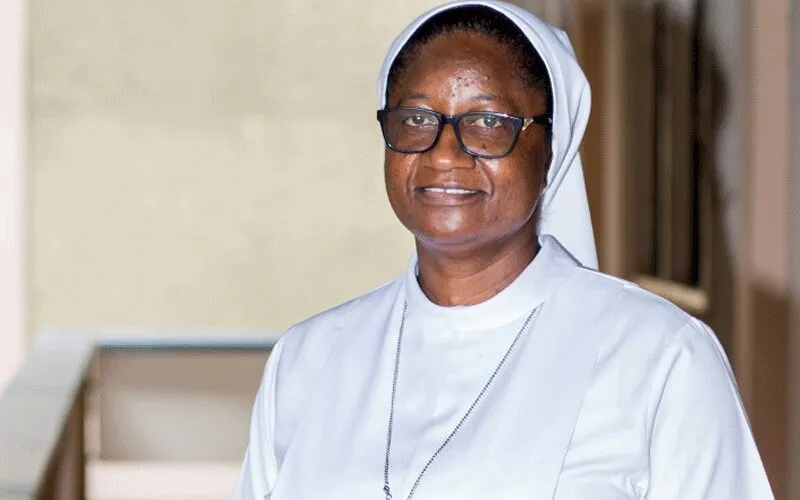According to Ghanaian Bishop, the celebration should be a means of popularizing the service of charity as an integral part of the Church’s Mission.
“Through the annual celebrations of this dedicated Week, support for the poor should be more felt in Communities, Church Groups, Civil Society, public policy spaces and indeed, all of society,” Bishop Osei-Bonsu said.
Sr. Regina who also made a presentation during the Webinar Session on Caritas Ghana’s COVID-19 interventions, noted that “through the support of the faith community as well as the hard work, dedication and commitment of its team, Caritas Ghana has not relented in living advancement of its motto inspired by 1 Timothy, “Good Works, Generosity and Sharing.”’
She said at the November 12 Webinar that with the help of partners, Caritas Ghana had provided essential goods and services such as food, shelter and medicine for the poor and vulnerable. The group has also fed indigenous population during the lockdown in Accra, Kasoa and Kumasi.
She indicated that campaigns on capacity building in humanitarian standards were intensified particularly in response to humanitarian emergency, safeguarding, and reporting standards.
(Story continues below)
“Our advocacy is targeting inclusion, civil social organizations, government, social protection, the poor of the poor, Metropolitan, Municipal and District Assemblies on accountability of government on humanitarian resources.,” she added.
On his part, Executive Secretary of Caritas Ghana, Samuel Zan Akologo who moderated the Webinar said that the words in the theme for the fourth World Day of the Poor “remain expedient considering the difficult times we are facing globally.”
“The impact of the Coronavirus pandemic, especially its economic adversities have been felt all around the world with its harsh realities mostly affecting the vulnerable in the society living in poverty; women and children, persons with disabilities and other marginalized groups,” Mr. Akologo bemoaned.
Pope Francis established the World Day of the Poor in the Apostolic Letter Misericordia et Misera published 20 November 2016, at the end of the Extraordinary Jubilee of Mercy.
He decreed that it should be celebrated on the 33rd Sunday of Ordinary Time, in preparation for the Solemnity of our Lord Jesus Christ, King of the Universe “who identified with the little ones and the poor and who will judge us on our works of mercy.”
“It would be a day to help communities and each of the baptized to reflect on how poverty is at the very heart of the Gospel and that, as long as Lazarus lies at the door of our homes, there can be no justice or social peace,” the Holy Father wrote.
He added, “This Day will also represent a genuine form of new evangelization which can renew the face of the Church as She perseveres in her perennial activity of pastoral conversion and witness to mercy.”
In his Angelus address November 15, Pope Francis reportedly urged Christians to discover Jesus in the needy. He said, “At times, we think that to be Christian means not to do harm. And not doing harm is good. But not doing good is not good. We must do good, to come out of ourselves and look, look at those who have more need.”
The Holy Father added, “There is so much hunger, even in the heart of our cities; and many times we enter into that logic of indifference: the poor person is there, and we look the other way. Reach out your hand to the poor person: it is Christ.”








